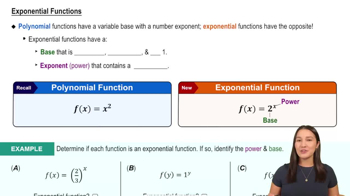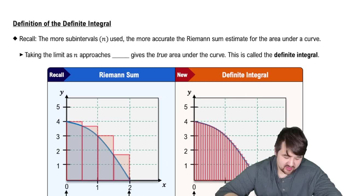More limits Evaluate the following limits.
lim_x→1 (x ln x - x + 1) / (xln²x)
 Verified step by step guidance
Verified step by step guidance Verified video answer for a similar problem:
Verified video answer for a similar problem:



 5:53m
5:53mMaster Finding Differentials with a bite sized video explanation from Patrick
Start learning